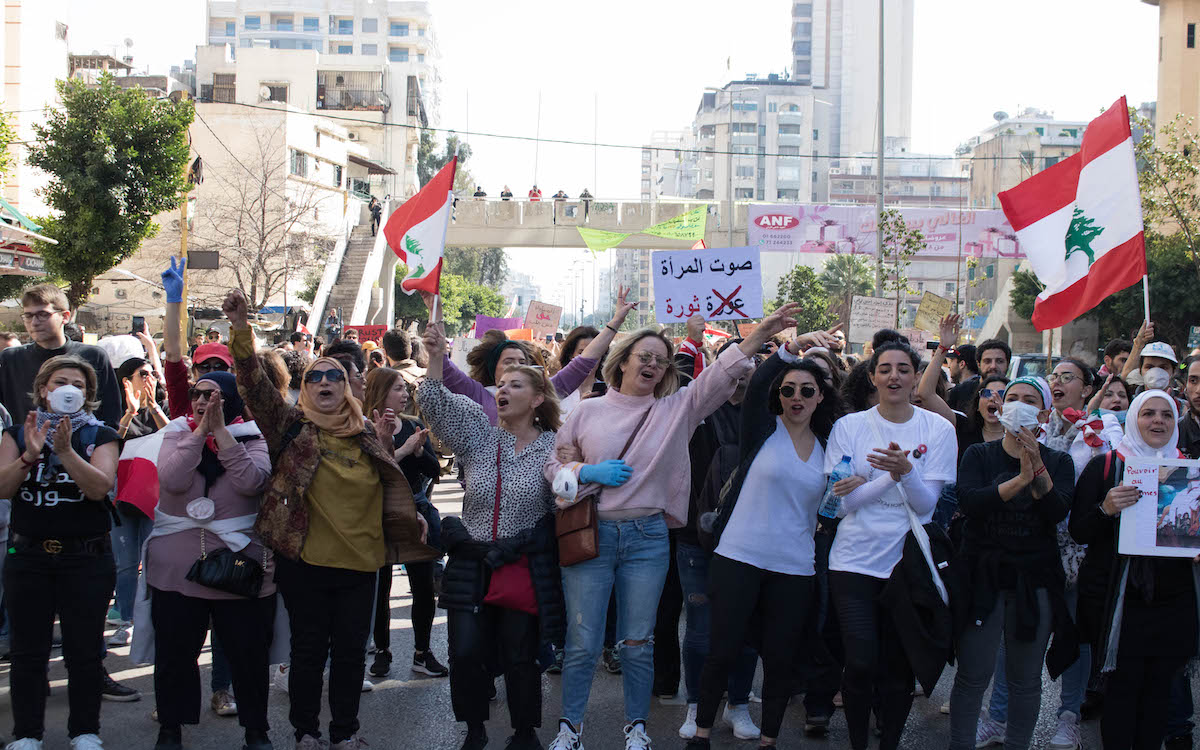
Throughout the world, women are celebrated on March 8 every year.
However, particularly in the Middle East and North Africa, this historically oppressed group has not seen significant progress in social justice and politics.
Currently, the UN estimates that it will take almost another three centuries to achieve gender equality.
The lives of about 383 million women and girls are hindered by persistent inequalities. A woman or girl is murdered by someone in her own family every 11 minutes.
The patriarchal values that govern society continue to hold sway in Lebanon and neighboring countries, including Syria, where women are offered little to no legal protection and have no political influence – with a few exceptions.
There are some feminist figures who gain visibility, and demonstrate that being a woman is not an obstacle, but a strength.
Some of these icons have passed away, but their ideas continue to live on.
In commemoration of this year’s Women’s Day, we remember the Lebanese Linda Matar and the Frenco-Syrian Bassma Kodmani, both of whom passed away early in the year.
Linda Matar
Born on December 27, 1923, Linda Matar contributed to the development of the women’s rights movement in Lebanon – at the time a notion that was unheard of.
Matar dedicated 60 years of her life to women’s rights in Lebanon and the region.
According to the Civil Society Knowledge Center, the early years of Matar’s life were spent working in silk factories, where she witnessed first-hand the unequal treatment of young women and girls despite their hard work.
In 1953, she joined the League for Lebanese Women’s Rights and in 1978 assumed its presidency. Simultaneously, she coordinated the regional office of the Women International Democratic Federation. Her advocacy efforts over 40 years towards amending laws biased against women are noteworthy. Moreover, she established multiple women-centered NGOs in Lebanon and represented her country at sixty Arab and global gatherings. Though unsuccessful, in 1996 she had a go at parliamentary polls, to which she remarked later:
“When I ran for elections, I told them [friends and family], ‘Don’t wait for me to succeed; I ran because it was my duty to run, but I knew I wouldn’t win because I did not have the toolkit. No one in my family was involved in politics; not my father nor my brother or husband, which left me backboneless… To this day, this hasn’t changed much, wasta [nepotism] plays a role.”
Matar died at the age of 98 on February 3, 2023, leaving behind a long heritage of perseverance and fighting for women’s rights.
Bassma Kodmani
Born in Damascus in 1958, Bassma Kodmani spent a large part of her life in exile and was also a French citizen.
In 2011, when the Syrian revolution broke out, Kodmani was a leading member of the Syrian opposition. Before resigning in 2012, she served as head of foreign relations and spokesperson for the Syrian National Council, a coalition of opponents of Bashar al-Assad’s regime.
According to France 24, Western media outlets often cited her for her diplomatic skills and calm demeanor.
A proud traditional Muslim, Kodmani brought to the Syrian opposition a model of nationalism uncorrupted by sectarianism, New Lines Magazine reported. Yet she still viewed Syria’s future in terms of citizenship. She was in conflict with some members of the opposition from the beginning of Syria’s revolution due to her secular approach to governance and her adamant refusal to entertain notions of sectarianism of any kind. She was also a member of the constitution committee.
Kodmani also participated in United Nations-hosted meetings in Geneva as a member of the opposition High Negotiations Committee and helped formulate humanitarian and political action guidelines for Syria to European Union institutions in Brussels.
From 2005 to 2019, Kodmani was the executive director of the Paris-based Arab Reform Initiative think tank and an author with a doctorate in political science from Sciences Po.
After battling breast cancer for many years, Kodmani passed away on March 3, 2023.
Courage, strength and fearlessness
Feminist activist Nada Anid cited Kodmani as an example of bravery and fearlessness for speaking against the Syrian regime known for oppressing freedoms.
“The courage she maintained and the sharp voice she exhibited throughout her life after the 2011 revolution were impressive,” Anid told NOW.
The activist adds that the decade-long civil war that tore Syria apart spotlighted the role of women in carrying the voice of the opposition abroad, when it was prohibited for them to stay in Syria and lead the change they desired to do.
Matar, as well, was a pioneer in Lebanon’s struggle for women’s rights and did not give up even as she aged, according to Anid.
“In this region, we need to have women like these as role models so new generations can follow their paths or study their lives and learn from them,” she said. “In the absence of equality, it is hard to bring about progress, but there is always room for women to lead the way.”
Dana Hourany is a multimedia journalist with @NOW_leb. She is on Instagram @danahourany and Twitter @danahourany.








